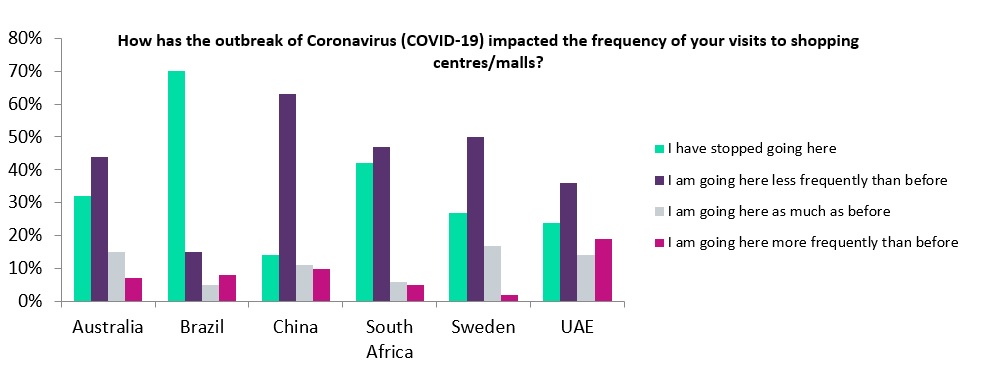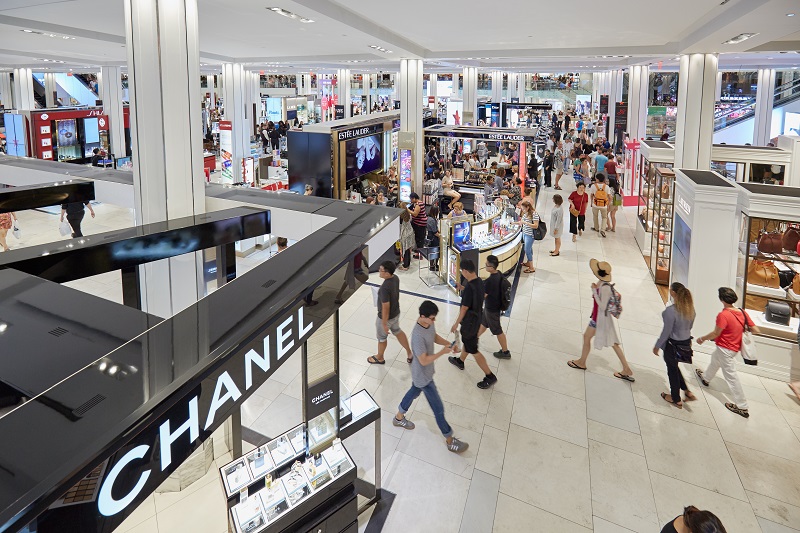Retailers will find it difficult to encourage consumers to visit beauty halls post-pandemic because of hygiene concerns. And it will be made harder for retailers as many beauty halls are located in shopping centres, which consumers have avoided during the crisis. According to week six of GlobalData’s 10-week global consumer survey, in countries where shopping centres have now reopened, or never closed, consumers are visiting shopping centres much less frequently than they were before the pandemic.
British retailer Next recently announced that it will open beauty halls within five former Debenhams stores in the UK, all of which are located in shopping centres (these Debenhams stores closed during the pandemic). Next will need to focus on providing a sanitary environment with regular cleaning and personal protection equipment (PPE) for all staff, and must create an experience that cannot be replicated online.

Source: GlobalData’s 10-week global consumer survey. The above results are from week six (28 April- 3 May 2020). ‘I am going here less frequently than before’ is a combination of the responses ‘I am going here significantly less frequently than before’ and ‘I am going here slightly less frequently than before’. ‘I am going here more frequently than before’ is a combination of the responses ‘I have never been here, but have started going here now’, ‘I am going here slightly more frequently than before’ and ‘I am going here significantly more frequently than before’.
Next can learn from how beauty retailers have responded to the pandemic in countries such as China. To protect the safety of staff and customers, retailers should cease testing of the same item on customers, and all beauty tools must be disposable. Beauty therapists must wear faceguards while giving treatments. For further peace of mind, beauty halls may consider air-filtration systems to reduce mould and bacteria in the air. In China, Sephora is taking no risks: staff check the temperature of every customer, sanitise stores every two hours, and sanitise each product purchased.
With the removal of testers, beauty halls have an opportunity to introduce new technology such as virtual try-on tools instore. Already present in selected MAC and Charlotte Tilbury stores worldwide, augmented reality mirrors reduce the possibility of contamination, and enable customers to try on various makeup looks in a short space of time.
To cater for consumers with less discretionary spend than before the pandemic, premium beauty brands should offer free testers, smaller-sized products, and promote products at the lower end of the price range. According to week six of GlobalData’s 10-week global consumer survey, 32% of consumers worldwide are purchasing beauty/grooming products at the lower end of the price range or have stopped purchasing these products altogether.
Latest reports from

Or to search over 50,000 other reports please visit
GlobalData Report StoreGlobalData is this website’s parent business intelligence company.















